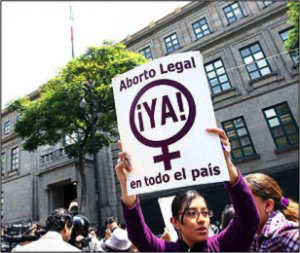This roundtable presents findings from a 3 year LawTransform research project analyzing the strategic use of rights and law in the contentious battles over abortion rights in Latin America. Access to legal abortion is severely restricted in most of the region, but the role of socio-legal mobilization and the courts has been key in improving access to legal abortion in recent years. The project focuses on movement and countermovement patterns and dynamics, and considers the various effects of this lawfare between opposing groups. The effects of lawfare on abortion deserve special attention on account of the implications for gender relations, the dignity, health, autonomy and wellbeing of vulnerable groups, and for social policy. The project case studies analyse battles over legal abortion and the progressive and counter-progressive use of courts and other government institutions, focusing on the nature, form, causes and consequences of such lawfare. The cases include Argentina, Brazil, Colombia, Mexico, Peru, and El Salvador and two studies analysing regional and global dimensions and trends of lawfare around abortion and women’s health rights. Findings indicate: a growing importance of trans-/international forums and organizing; a retreat from moral/religious framings in battles over abortion and a growing importance of rights framings; and backlash dynamics that are not uni-linear, and differ significantly from patterns suggested by research on the USA.
Moderator: Rachel Sieder (CIESAS, Mexico/CMI – project leader)
Participants include: Participants include Isabel Jaramillo (Los Andes University, Bogota)
Ana Cristina Gonzalez Velez (University of Rio de Janeiro); Angélica Peñas (Cordoba University, Argentina) in dialogue with Gro Lindstad (FOKUS);

